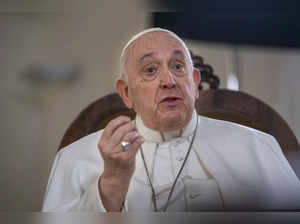
The alternate Old Testament reading for Holy Saturday is Lamentations 3:1-9, 19-24:
I am someone who saw the suffering caused by God’s angry rod.
He drove me away, forced me to walk in darkness, not light.
He turned his hand even against me, over and over again, all day long.
He wore out my flesh and my skin; he broke my bones.
He besieged me, surrounding me with bitterness and weariness.
He made me live in dark places like those who’ve been dead a long time.
He walled me in so I couldn’t escape; he made my chains heavy.
Even though I call out and cry for help, he silences my prayer.
He walled in my paths with stonework; he made my routes crooked.
The memory of my suffering and homelessness is bitterness and poison.
I can’t help but remember and am depressed.
I call all this to mind—therefore, I will wait.
Certainly the faithful love of the Lord hasn’t ended; certainly God’s compassion isn’t through!
They are renewed every morning. Great is your faithfulness.
I think: The Lord is my portion! Therefore, I’ll wait for him.
This odd passage–beginning in despair (“He drove me away, forced me to walk in darkness, not light”), yet ending in hope (“The Lord is my portion! Therefore, I’ll wait for him”)–is perfectly appropriate for this odd, in-between day in the church calendar, bridging the sorrow of Good Friday and the rejoicing of Easter Sunday.
Early Christians wondered what Jesus was doing on this day between death and resurrection. 1 Peter 3:18-20 declares,
Christ himself suffered on account of sins, once for all, the righteous one on behalf of the unrighteous. He did this in order to bring you into the presence of God. Christ was put to death as a human, but made alive by the Spirit. And it was by the Spirit that he went to preach to the spirits in prison. In the past, these spirits were disobedient—when God patiently waited during the time of Noah. Noah built an ark in which a few (that is, eight) lives were rescued through water.
The idea that after his death Jesus proclaimed the Gospel to souls in the underworld (see also 1 Peter 4:6) led in turn to the tradition of the harrowing of Hell: the notion that the risen Christ triumphantly descended to the underworld to deliver into heaven the righteous who had died before his coming.
 By around the eighth century, this confession was incorporated into the Apostles Creed; most Christians today recite the phrase “He descended into hell” or “He descended to the dead” as part of the Creed (although many United Methodists stick with the older form). Whatever we may think of this confession, it recognizes that Jesus’ life, death, and resurrection transform all space and time, bringing salvation not only to those of us who live on this side of Easter, but to all the generations who lived before.
By around the eighth century, this confession was incorporated into the Apostles Creed; most Christians today recite the phrase “He descended into hell” or “He descended to the dead” as part of the Creed (although many United Methodists stick with the older form). Whatever we may think of this confession, it recognizes that Jesus’ life, death, and resurrection transform all space and time, bringing salvation not only to those of us who live on this side of Easter, but to all the generations who lived before.

Pope Francis has said of Holy Saturday:
The day of God’s silence–invites us not only to solidarity with all who are abandoned and alone, but also to trust in that faithful love which turns death into life.
We, of course, know this in-between place well: this Holy Saturday zone of ambiguity and unresolved tension. Many of us feel trapped in just such a place of uncertainty. May Christ’s victorious life bring possibility even into these shadow lands, and give us hope that we will be delivered into his marvelous light.
AFTERWORD:
The Revised Common Lectionary Prayers include this prayer for Holy Saturday:
Christ our God,
your love is poured out in death for our sakes.
Hold us in your embrace
as we wait for Easter’s dawn.
Comfort us with the promise that no power on earth, not even death itself,
can separate us from your love;
and strengthen us to wait
until you are revealed to us
in all your risen glory. Amen